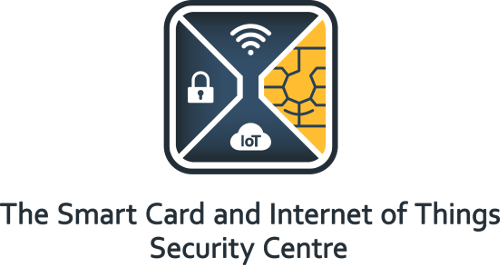The students that study for the MSc in Information Security at Royal Holloway are obliged to complete a project. In any one year the Smart Card and IoT Security Centre will suggest and supervise around 25 MSc projects. At the beginning of the new term we gather project ideas from our industry members and supporters, then we put them into a list that is circulated (usually by end of October) to the new intake. We aim to match students to projects by the Xmas break – so they can make an early start.
Good students will be working on the project from this point on, along side their lectures. They take a break around May to the exams, before focusing full-time on completed and writing up their projects by early September. A project should be related to applied information security in some way, be achievable in the timescale, and involve some challenge and original thought for the student. Projects may be theoretical or a mix of practical/theoretical. Note that a proposed project should not involve confidential data/info as the final report is regarded as ‘public’, and simply implementing someone else’s idea (e.g. demonstrator) would not make a good report. More info on the MSc project can be found here.
Examples of Past MSc Projects
- GPU-based microarchitectural attacks on ARM-based devices
- IoT Devices on the Blockchain
- User Centric Data Provenance in E-Health Systems or Transport Travel
- Privacy preserving smart card ticketing and payment protocols
- What are the security pros/cons of a public transport operator storing all customer data in the cloud?
- Securing Internet of Things (IoT) from Botnet Control – Evolution, Analysis and Recommendations
- Protecting Users from Ransomware
- Trusted Execution of Docker Containers: An Evaluation of Intel TXT and SGX
- Mapping out ransomware campaign via Bitcoin transactions
- Detecting and Preventing Malvertising in Browsers
- Anomaly Detection in IoT networks
- Digital Cash protocols: attacks and defences
- Secure transactions using NFC Tags
- SIM/USIM-centric trusted home network
- E-voting protocols
- “Helpful” root-kit for Android phones
- Mobile device malware and botnets
- Secure Personal Area Network, using RFID/phone/laptop in wireless proximity
- Analysis of security of different mobile phone platforms (e.g. Symbian, Windows, Android, iOS)
- Security of smart metering systems
- Java Card 3 vulnerability analysis
- Evaluation of performance of Elliptic Curve Cryptography in smart cards
- Study of general vehicle security e.g. key-less/RFID locks, immobilisers
- Development of security related application for Android OS
ISG MSc Project Prize
In the past, several students of the SCC has been awarded with the David Lindsay Prize:
- 2016: Evaluation of Apple iDevice Sensors as a Potential Relay Attack Countermeasure for Apple Pay by Gareth Haken, supervised by Konstantinos Markantonakis.
- 2014: Verifying the Integrity of Open Source Android Applications by Michael Macnair, supervised by Keith Mayes.
- 2013: Analyzing Application Data Security on Android Devices by Pallavi Sivakumaran, supervised by Keith Mayes.
- 2011: Practical Implementation of Grouping Proof for RFID by Antony Bills, supervised by Konstantinos Markantonakis.
- 2010: Efficiency of Zero-Knowledge Proofs of Knowledge Identification Protocols on Smart Cards by Andreas Grünert, supervised by Keith Mayes.
- 2003: Java Card Application to Provide Secure SMS by Brian Portsmore, supervised by Konstantinos Markantonakis.
This prize is awarded every year by the British Computer Society’s Information Security Specialist Group to the project that best addresses innovative applications of Information Security. It is open to all MSc projects which focus on information security. The decision is made by BCS ISSG.
